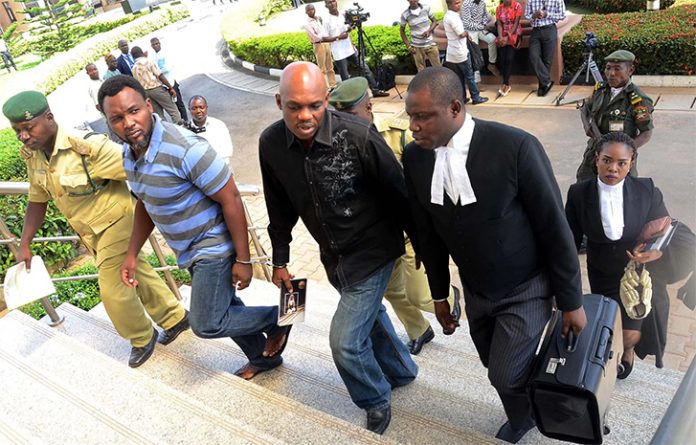It is said that the wheels of justice grind slowly. This is more so in the developing countries. But no matter how long it takes, the system usually reaches a verdict. That is what has happened to the suspected masterminds of the October 1, 2010 bombing in Abuja, Charles Okah and Obi Nwabueze. The Federal High Court sitting in Abuja has found them guilty of the offense and sentenced them to life imprisonment.
Justice Gabriel Kolawole, who delivered the prolonged judgment on the eight-count charge of terrorism declared that Okah, a younger brother to former leader of the separatist movement, MEND, Mr. Henry Okah, and his accomplice, Mr. Obi Nwabueze, committed terrorism. He said they used dynamites to unleash acts of terrorism on Nigerians and foreign dignitaries, who had gathered at the Eagle Square for the Independence Day celebration.
The judge held that both the documentary and oral evidence that were submitted by the federal government linked the convicts to the Independence Day bombing at Eagles Square, Abuja. The court dismissed the convicts’ plea for clemency and agreed with the prosecuting counsel, Dr. Alex Iziyon, a Senior Advocate of Nigeria, who had urged the court to ignore the convicts’ plea for mercy.
The Okah brothers were alleged to have procured all the materials that were used for the attack, the federal government told the court that it was the second defendant, Obi Nwabueze, who helped them to fix Improvised Explosive Devices, IEDs, in the two cars used for the bombing.
Four persons – Okah, Nwabueze, Edmund Ebiware and Tiemkemfa Francis-Osivwo – were initially arraigned before the court on December 7, 2010, over their alleged involvement in the bomb blast, which killed about 12 people and wounded many others. Francis-Osivwo reportedly died in prison custody, while Ebiware, who was tried separately in 2013 and convicted, is currently serving life imprisonment, leaving Okah and Nwabueze to face last week’s trial.
In the cause of the trial, the prosecuting counsel, Dr. Izinyon, called 17 witnesses to prove that the defendants actually committed the offence. At the close of the case by the prosecution, the defendants filed a No-case-submission on the ground that there was no need to enter defense.


















